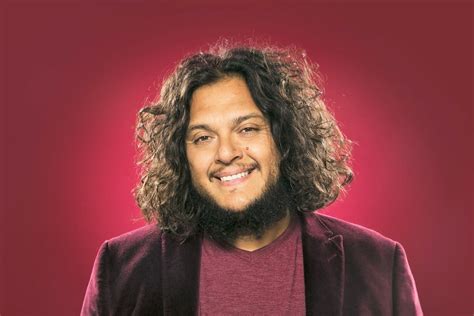A Quote by Shiv Nadar
When you take the best of universities in the world, all of them have research and education contiguous; the person who teaches you could be a Nobel laureate. Some subjects are at the tri-junction of many subjects put together.
Related Quotes
Part of the appeal was that Medawar was not only a Nobel Laureate, but he seemed like a Nobel Laureate; he was everything one thought a Nobel Laureate ought to be. If you have ever wondered why scientists like Popper, try Medawar's exposition. Actually most Popperian scientists have probably never tried reading anything but Medawar's exposition.
I have no control, of course, over how I'm marketed. It's a sad thing, though, that so many people perceive literature to be gendered. The idea that some subjects are male and some are female is just preposterous to me. It's reductive and nonsensical, to separate writers and subjects and plots along gender lines. It's meaningless.
The Vedas give information on various subjects. They have come together and form one book. And in later times, when other subjects were separated from religion - when astronomy and astrology were taken out of religion - these subjects, being connected with the Vedas and being ancient, were considered very holy.
Education cannot be neutral. It is either positive or negative; either it enriches or it impoverishes; either it enables a person to grow or it lessens, even corrupts him. The mission of schools is to develop a sense of truth, of what is good and beautiful. And this occurs through a rich path made up of many ingredients. This is why there are so many subjects - because development is the results of different elements that act together and stimulate intelligence, knowledge, the emotions, the body, and so on.
When I'm writing about complicated subjects, it usually involves a world. It could be the world of Scientology or the world of Al Qaeda, or the world of counter-terrorism.I look for emblematic beasts of burden - what I call "donkeys" - who can carry the reader through this world. They serve a different purpose. Donkeys are not especially interesting or likeable, but they are serviceable. They will take you into this world. The distinction I'm trying to make is: It's not about them. It's about the world.
The book that influenced me most is Sherlock Holmes, which teaches you the way to deal with reality: to deduct. It teaches you to put together the signs. For example, I look at a person and I see their coat, their jacket, their handwriting, their iPhone, and I am able to deduct some details about who they are, what they wear, and what they do. For many years I was fascinated with Sherlock Holmes. The series trained me to look at the world through these sharp, unforgiving eyes.



































